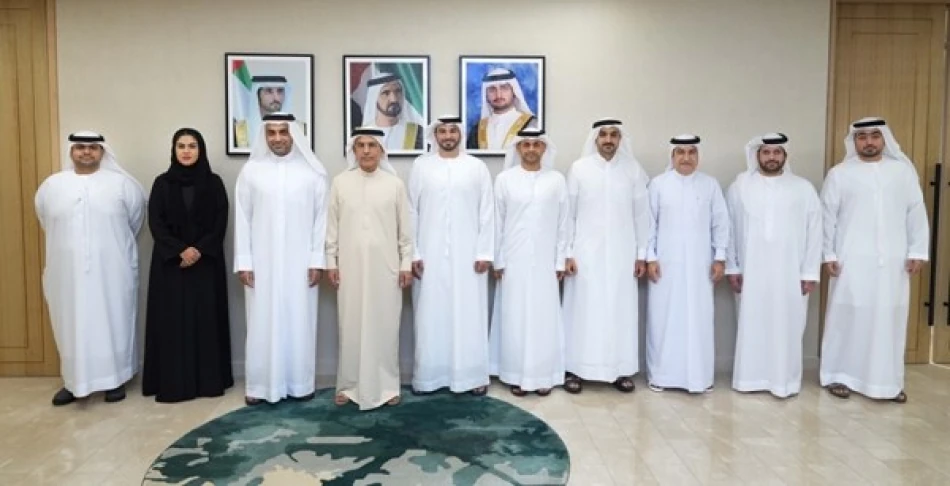
Dubai Finance and Digital Economy Collaborate to Drive Digital Transformation
Dubai Accelerates Cashless Society Vision Through Strategic Public-Private Partnership
Dubai's Department of Finance and the Dubai Chamber of Digital Economy have signed a comprehensive memorandum of understanding to fast-track the emirate's ambitious cashless society strategy. The partnership focuses on three critical pillars: governance, innovation, and digital payment transformation across financial services, positioning Dubai as a global leader in fintech adoption and digital economic infrastructure.
A Coordinated Approach to Digital Transformation
The agreement, signed by senior officials including Dubai Finance Director General Abdul Rahman Saleh Al Saleh and Dubai Chambers Director General Mohammed Ali Rashid Lootah, establishes a framework for knowledge sharing, data analytics collaboration, and joint deployment of cutting-edge financial technology solutions.
The partnership will create specialized working groups dedicated to accelerating cashless transformation in the financial sector, with particular emphasis on developing innovative initiatives that serve both institutional and consumer needs. This coordinated approach ensures that Dubai's digital payment ecosystem develops cohesively rather than through fragmented efforts.
Building Trust Through Education and Capacity Building
National Awareness Campaigns
A key component of the collaboration involves launching comprehensive awareness campaigns designed to build public confidence in digital payment solutions. These initiatives will target both businesses and consumers, addressing common concerns about security, reliability, and ease of use that often hinder digital payment adoption.
The partnership will also focus on developing national capabilities in fintech, creating training programs that enable private sector companies to better understand and utilize available digital payment tools and applications.
Integration with Government Services
The memorandum emphasizes enhancing the use of existing government digital payment systems and applications, creating seamless integration between public and private sector payment infrastructure. This approach mirrors successful models seen in countries like Singapore and Estonia, where government-led digital initiatives have catalyzed broader economic transformation.
Strategic Implications for Dubai's Economic Future
Dubai's cashless strategy represents more than technological modernization—it's a calculated move to cement the emirate's position as a global financial hub. By reducing reliance on physical currency, Dubai aims to increase transaction efficiency, reduce costs, and enhance financial transparency.
The timing is particularly strategic, as global financial centers compete to attract fintech companies and digital-native businesses. Dubai's comprehensive approach, combining regulatory support with private sector expertise, creates an attractive environment for international financial technology firms considering Middle Eastern expansion.
Regional and Global Competitive Context
Dubai's initiative comes as regional competitors like Saudi Arabia and Qatar invest heavily in digital transformation. The UAE's federal government has already established itself as a crypto-friendly jurisdiction, and Dubai's cashless strategy complements this broader vision of becoming a digital economy leader.
Compared to established cashless societies like Sweden or South Korea, Dubai benefits from newer infrastructure that can accommodate the latest payment technologies without legacy system constraints. This advantage, combined with the emirate's position as a regional business hub, could accelerate adoption rates beyond those seen in more established markets.
Market Impact and Investment Opportunities
The formal partnership signals strong government commitment to digital payment infrastructure, likely attracting increased venture capital and private equity investment in UAE-based fintech startups. Financial institutions operating in Dubai may need to accelerate their own digital transformation initiatives to remain competitive in an increasingly cashless environment.
For multinational corporations with regional operations, Dubai's cashless push could reduce operational costs and improve financial reporting capabilities, making the emirate an even more attractive base for Middle Eastern operations.
The success of this public-private collaboration will likely influence similar initiatives across the GCC region, potentially creating a broader cashless economic zone that enhances trade and financial integration among Gulf states.
Most Viewed News

 Layla Al Mansoori
Layla Al Mansoori






